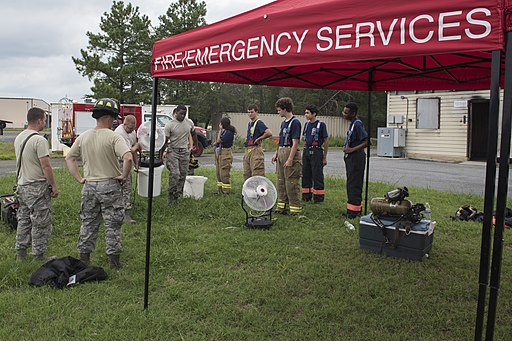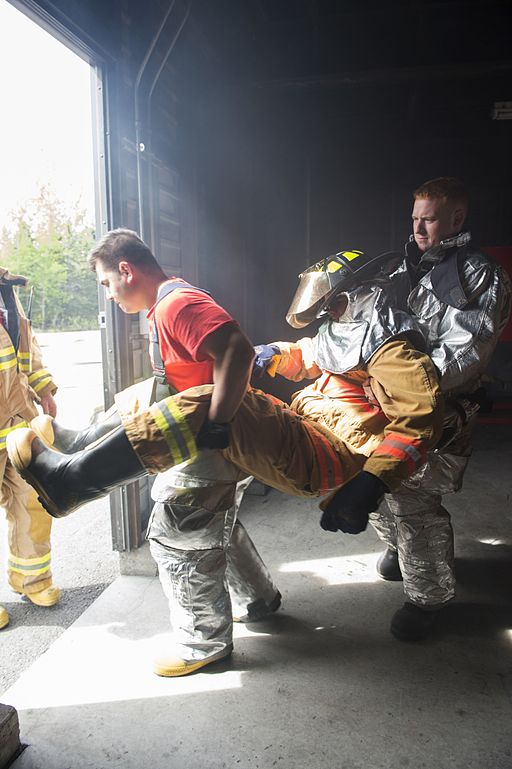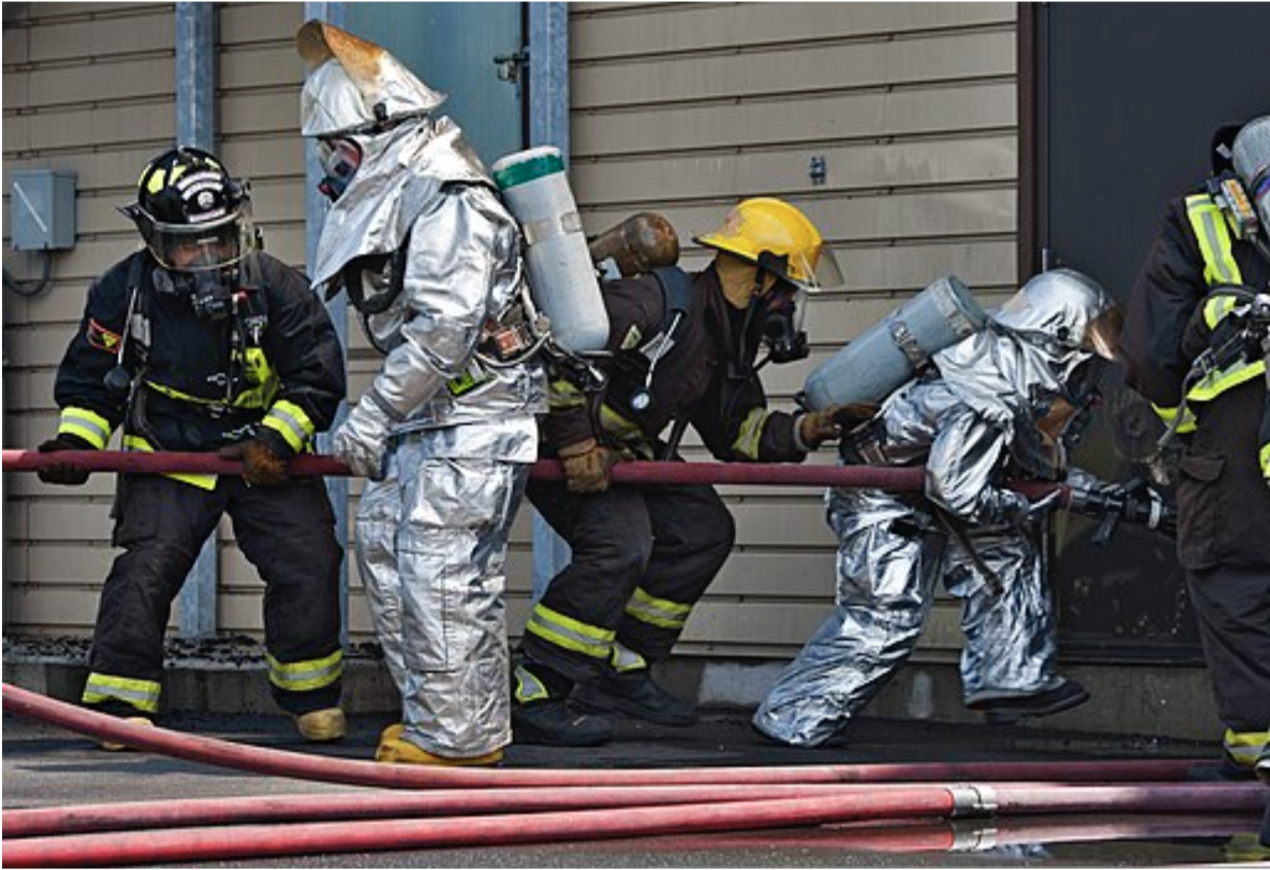The Fire Academy offers a wide array of training opportunities for aspiring firefighters.
Have you ever considered becoming a firefighter? If so, you may wonder whether fire academy training is paid for or if you have to cover the costs yourself. The short answer is that it depends on which type of training academy you attend. Let’s take a look at what you need to know about the cost of fire academy training.
What is Fire Academy Training?
Fire academy training is an intensive program designed to provide firefighters with the necessary skills and knowledge required for the job. The courses are typically 10-24 weeks long and about 600 hours, depending on your state’s regulations, and include classroom instruction as well as physical fitness activities.
It is becoming more and more common for states to call a fire training academy a “fire recruit academy.” The name emphasizes that the trained recruits are on their way to becoming firefighters.
During the course, the instructors teach topics such as search and rescue techniques, hazardous materials (HAZMAT) response, fire suppression methods, building construction safety protocols, medical emergency response procedures, incident command system principles, and more. Upon successful completion of the course, participants are certified to serve in their states’ fire departments.
What are the requirements for joining the fire service?
Admission into a fire academy traditionally requires a high school diploma or GED. Specific admission requirements vary depending on the program, so it is important to consult with each recruit academy before beginning the application process.
Once accepted into an academy program, recruits can expect to receive both classroom instruction and hands-on experience to prepare them for their new profession.
Common certifications required by a traditional academy include completing various levels of EMT training, Firefighter I certification, CPR/AED certification, hazardous materials operations training certification, and first aid certification. The particular coursework required by each program varies depending on jurisdiction regulations.
However, most include some combination of theory classes, including fire technology and fire protection systems; practical training sessions such as vehicle extrication and building construction; physical conditioning exercises like running and stair climbing; and psychological evaluations.

Ready for action: Joint Base Andrews Fire Explorer Academy cadets and instructors gear up for search and rescue training.
What type of fire academy is paid?
There are two types of fire academies: fire department hiring academies and college or vocational fire academies.
The first type of fire academy is run by a local or regional fire department when they are looking to hire new firefighters. Fire departments typically hire their recruits and provide paid training for those accepted into the program. In this case, you are an employee of the fire department, though sometimes you may start at a lower pay step than the regular starting salary for a firefighter in that department. Some departments do pay full compensation from day one, however.
The second type of fire academy is run by colleges or other vocational schools and students pay for their own education. Usually, these programs cost several thousand dollars depending on the length and curriculum covered.
In some cases, colleges may offer financial assistance to help cover the cost of tuition.
Salary range
For recruits in the academy, there is potential for considerable reward. For example, in Lakewood, Colorado, the pay for a firefighter starting out can be between $50,000 and $58,000 in the first year. After that, it can go up by as much as $10,000 each of the next four years.
If a recruit graduates eager and motivated, they can further advance their career with additional tests and a degree. This will open them up to rising further up the salary scale faster than they might expect.
Advantages of attending a Fire Academy
Acquire the necessary knowledge and skills to become a successful firefighter
Through classroom lectures and hands-on experience, students learn essential concepts such as fire behavior, building construction, rescue operations, hazardous materials operations, fire prevention, and more.
Moreover, they gain real-world experience while working with experienced instructors who can help them perfect their techniques. This combination of theoretical information and practical experience is invaluable in preparing students for future careers as firefighters.

Joint Base Elmendorf-Richardson Firefighters conduct live-fire and rescue training
Learn best practices in emergencies
Fire training academy provides lessons on responding quickly and effectively during an emergency. In their lessons, firefighters learn about different methods for extinguishing fires involving various types of fuels, how to safely use ladders and other equipment, effective search and rescue tactics, first aid, radio communication procedures, handling hazardous material spills or fires, rescuing people from confined spaces, extracting people from vehicles, responding to medical emergencies, and more. Firefighter training prepares recruits to handle any situation.
Enhanced physical fitness capabilities
The training exposes students to more intensive physical fitness activities than the average person, providing them with enhanced physical fitness capabilities that they can take advantage of throughout their careers as firefighters.

Firefighting Recruit Training Academy, Pearl Harbor
Increased job opportunities and salaries
Participants who complete the course successfully will be more attractive candidates when applying for positions within the fire service due to their certification from the academy program. With an educational background from a reputable fire academy program, hiring fire departments may view applicants more favorably than those without any formal training in the area of firefighting.
The additional experience also often results in higher salaries for applicants who have gone through an accredited fire academy program.
Choosing Your Path
If you’re trying to decide between attending a fire recruit academy or enrolling in a college or vocational program, there are several things to consider before making your decision.
For instance, if you attend the fire department hiring academy and don’t complete it successfully, you won’t receive any compensation for your efforts, so make sure you understand the requirements before applying for such an academy position.
On the other hand, college/vocational programs may provide more flexibility as far as the schedule goes since they do not typically affiliate with any particular department. Ultimately, it’s up to you which path best suits your goals and lifestyle.
When deciding which type of fire academy best fits your needs and goals, there are many factors to consider before leaping into this gratifying career field. It is necessary to understand the costs of various training programs, such as a fire department hiring academy or college/vocational program, to make an informed decision and set yourself up for success.


